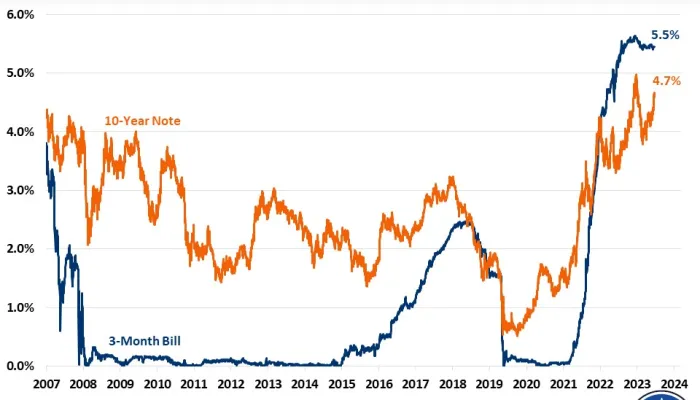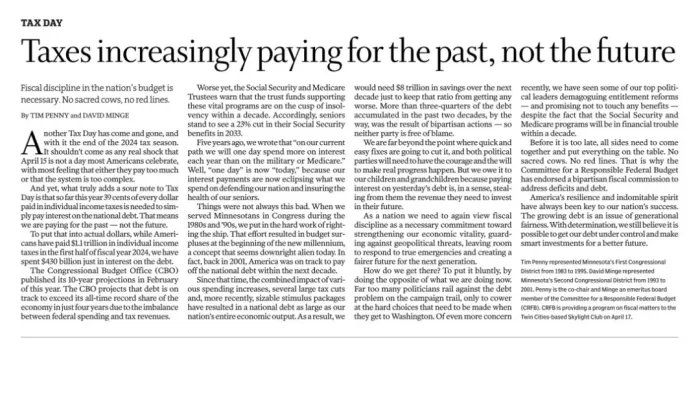CRFB's Jason Peuquet on the Republican Candidates' Plans
On New America's weekly podcast series The Sidebar, CRFB Research Director Jason Peuquet added some analysis on Representative Paul Ryan's (R-WI) budget and how his pick as Governor Mitt Romney's running mate will change the focus of the presidential election. Peuquet was excited about the Ryan pick, as it keeps fiscal issues in the political spotlight.
It seems like the announcement of Ryan on the ticket has energized both sides. You see Republicans really excited to talk about these big issues - Medicare, Medicaid, our debt and you also see Democrats really jumping on the issue to highlight their differences with the Ryan budget and with Romney's proposals to also bring the budget up to the forefront. I think it bodes really well from our perspective—we push for gradual, responsible debt reduction over the next decade. And its certainly going to bring these issues up front to the center. I think that's great for the country because we absolutely need to have a debate on this.
Particularly with the Presidential Debates, Peuquet believes that the campaign could drive enough attention to our budget deficits to ensure that policymakers work to come to an agreement as soon as the election is over.
I think the microphone that the Presidential Debates and the Vice Presidential Debates can give to the issue is a huge opportunity. They've got the most access to voters and businesses across the country and by [the candidates] championing this issue, it think it will make reform an absolute necessity after election day.
It should be noted that Governor Romney's plan has some notable differences from Congressman Ryan's but the general approaches are quite similiar. Peuquet noted that both would seek to eliminate many tax expenditures and seek to control entitlement spending.
If you look at Ryan’s proposals and Governor Romney’s they're are actually very similar but by no means are they the same. Romney is advocating for more spending and resources going towards defense. On tax reform they differ, although both agree that we need to reduce actual tax rates, reduce a lot of the tax preferences in the code that make it really complicated for businesses and households to understand and comply with. And in terms of similarities, there are a lot of them. They both agree we need to control and reform the Medicare spending. Their proposals is to have a private competition system where Medicare would compete along side private plans which is very different from the current system.
When asked about the positive and negatives of Ryan's plan, Peuquet praises Ryan especially for his specific proposals on entitlement spending, a bold step on one of the major drivers on government debt. But the difficulty for Ryan, as with other policymakers that have focused on this issue, is trying to find a solution that has a chance for bipartisan support and becoming law.
Its good that Congressman Ryan focuses on entitlement growth because that is really the number one driver of debt going forward. He tackles health care costs and he calls for lawmakers to address Social Security reform. So that's critical. If you were going to point to any potential downsides of the plan, it that it doesn't set up as a vehicle for bipartisan compromise. And at this point we are past the point of asking what your ideal budget is, we are now at the legislative stage we we say "I've got your proposal and you've got yours, lets find a common ground and get this done.
No plan is perfect, even those that have bipartisan support like Simpson-Bowles and Domenici-Rivlin. But finding a solution to fix the debt will require looking for places to compromise so we can address the issue.
The full podcast on Paul Ryan and his budget can be found here.


